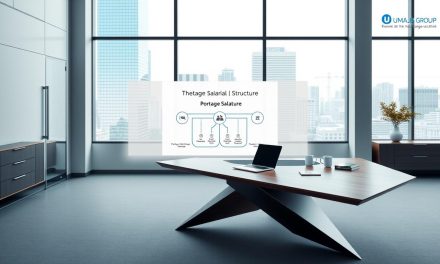Picture this: You’ve built a career on your own terms, choosing projects that excite you and clients who value your expertise. But beneath that freedom lies a quiet worry—how do I ensure my work here lasts? For independent professionals in the United States, this question often ties back to one critical factor: your standing under the law.
Whether you’re consulting, freelancing, or running a small business, your ability to thrive depends on clear guidelines. Recent policy updates and court rulings have reshaped opportunities for self-employed individuals. We’ll help you cut through the complexity.
Your choices today shape tomorrow’s stability. From visa categories to residency planning, every decision impacts your career trajectory. This isn’t just paperwork—it’s about securing the future you’ve worked so hard to create.
Table of Contents
Key Takeaways
- Your current standing affects work permissions, travel flexibility, and career growth
- Recent policy changes create new opportunities for self-employed professionals
- Multiple pathways exist to align your position with long-term goals
- Specialized visa categories cater to non-traditional work models
- Proactive planning reduces uncertainty in evolving regulations
Introduction: Understanding the Importance of Legal Status
For self-driven professionals, knowing where you stand officially unlocks doors to sustainable growth. Your authorization to work shapes everything from client contracts to business licenses—it’s the invisible framework supporting your career.
We understand traditional employment rules don’t always fit independent work models. That’s why clarity matters—a single oversight could limit your ability to expand services or hire subcontractors.
Consider these critical areas affected by your standing:
| Professional Aspect | Impact | Long-Term Effect |
|---|---|---|
| Tax Obligations | Filing requirements vary by authorization type | Audit risks without proper documentation |
| Client Agreements | Contract enforceability depends on work permissions | Reputation damage from breached agreements |
| Healthcare Access | Eligibility for plans tied to specific categories | Financial stability during unexpected events |
Proactive understanding prevents costly surprises. Immigration law complexities mean a small documentation gap today could stall visa renewals tomorrow. We’ve seen clients lose months of progress over expired permits they thought were still valid.
Your peace of mind grows when you master these details. Whether negotiating multi-state projects or securing business loans, your foundational standing determines what opportunities remain within reach—and which ones require strategic planning.
Defining ‘Legal Status’ for Independent Professionals
What defines your ability to work freely as an independent professional in the U.S.? Your official standing determines what opportunities you can pursue—and which rules govern your career path.
- Work permissions tied to specific activities
- Time limits for remaining in the country
- Options to modify your authorization as needs evolve
This framework isn’t set in stone. Policy updates or personal choices—like expanding your services—can shift requirements overnight. A visa holder today might qualify for permanent residency tomorrow with proper planning.
Consider how these factors impact daily operations:
| Professional Activity | Authorization Checkpoints |
|---|---|
| Contracting U.S. clients | Service scope matching visa terms |
| Hiring subcontractors | Business structure compliance |
| International travel | Re-entry documentation validity |
One missed deadline can unravel years of progress. We’ve guided professionals who nearly lost projects due to expired permits they assumed were auto-renewing. Regular reviews of your standing prevent these crises.
Your freedom to build a sustainable career hinges on this understanding. Whether negotiating retainers or scaling operations, clarity about your position removes invisible barriers to growth.
The Evolution of Legal Status in the United States

The framework governing work authorization in America has transformed dramatically since the early 20th century. What began as simple entry records now shapes how independent professionals build careers across shifting policy landscapes.
Historical Shifts and Policy Changes
Major legislative milestones like the 1965 Immigration Act dismantled nationality-based quotas, creating pathways for skilled professionals. Over decades, specialized visa categories emerged—H-1B for specialty occupations, O-1 for extraordinary abilities, and EB-1 for priority workers. These changes reflected growing recognition of non-traditional career paths.
Economic demands often drove reforms. The 1990 Immigration Act introduced the H-1B program specifically to address tech industry needs. However, researchers note these adjustments created layered complexities. « We’re navigating a system with 185 visa types today versus 34 in 1952, » observes migration policy expert Dr. Elena Torres.
Modern Trends in Immigration and Employment Laws
Recent years brought tighter enforcement mechanisms. The E-Verify system and I-9 audits now impact how independent workers verify eligibility. Studies show 72% of freelancers face new documentation requirements when contracting with corporations.
Technology complicates compliance further. Cloud-based work crosses jurisdictions faster than policies adapt. A graphic designer in Texas might serve clients in three states and two countries—each with distinct reporting rules. Your operational flexibility depends on understanding these mismatches between digital workflows and paper-based systems.
Employment laws increasingly intersect with federal authorization requirements. Twenty-eight states now mandate specific business licenses tied to immigration categories. Proactive professionals track both local regulations and national policy debates to maintain compliance.
Key Rights and Constitutional Protections
Imagine building your career while navigating complex systems—your foundation lies in knowing what protections apply to you. The U.S. Constitution safeguards fundamental freedoms for everyone within its borders, regardless of background or documentation.
Know Your Rights as an Immigrant
Your ability to operate confidently stems from understanding these core principles:
- Silence is protected: You never need to discuss your authorization details without an attorney present
- Warrant requirements: Officials must present court-approved documents to enter private workspaces
- Due process guarantees: Any challenge to your standing requires proper judicial review
| Right | What It Means | Action Step |
|---|---|---|
| Right to Silence | No obligation to answer questions about origin or permits | Politely decline to discuss without counsel |
| Privacy Protection | Business records can’t be seized without valid warrant | Keep documents organized but secure |
| Questioning Protocol | Requests for information require proper context | Verify official credentials before responding |
Ensuring Fair Treatment Under the Law
Discrimination has no place in professional relationships. Federal laws prohibit bias based on nationality or perceived background during:
- Client contract negotiations
- Workspace rental agreements
- Payment processing arrangements
Knowledge transforms uncertainty into strategy. When you understand how protections apply to your daily operations, you build resilience against unexpected challenges. Keep this checklist accessible:
- Attorney contact information
- Warrant verification guidelines
- State-specific anti-discrimination statutes
Legal Status and Immigration: An Overview

America’s immigration framework acts like a roadmap for independent professionals—detailing how you can enter, work, and build your career here. Each pathway comes with specific rules that shape your opportunities and limitations.
| Visa Category | Key Benefit | Typical Duration |
|---|---|---|
| H-1B | Specialty occupations | 3 years (renewable) |
| O-1 | Extraordinary ability | Project-based |
| E-2 | Investor operations | 2-5 years |
Your initial entry method matters. Those arriving on tourist visas face stricter limits when transitioning to work permits compared to visa holders. As Dr. Elena Torres notes:
« The system rewards strategic planning—early decisions ripple through your entire career. »
Three factors influence long-term stability:
- Current authorization expiration dates
- Eligibility for status adjustments
- Policy updates affecting renewal processes
Proactive professionals review their standing quarterly. Recent changes allow certain visa holders to self-petition for green cards—a game-changer for solopreneurs meeting specific criteria.
Travel flexibility often depends on your category. While some permits require advance parole for international trips, others enable seamless re-entry. Staying informed helps you avoid career-disrupting surprises.
Navigating Immigration Law for Independent Professionals

Charting your course through U.S. immigration rules requires understanding which pathways align with your professional ambitions. Self-employed individuals often qualify for unique opportunities that traditional employees can’t access—if they know where to look.
Strategic Visa Selection for Career Growth
Specialized categories like the E-2 investor visa or O-1 extraordinary ability visa enable business ownership and project-based work. Each option has distinct requirements:
| Visa Category | Key Benefit | Documentation Needs |
|---|---|---|
| E-2 | Operate businesses with qualifying investments | Business plan, financial records |
| O-1 | Work on groundbreaking projects | Media features, expert testimonials |
| EB-1 | Permanent residency for exceptional talent | Awards, patents, leadership evidence |
Building Toward Permanent Residency
Lawful permanent residency removes time constraints on career development. Many professionals transition through:
- Employment-based green cards
- National Interest Waivers
- Family sponsorship (if applicable)
Dual intent visas let you pursue temporary work while seeking permanent authorization. As immigration attorney Dr. Elena Torres explains:
« The EB-1 category now recognizes independent innovators—not just corporate employees. »
Adjustment of status applications demand precise timing. Missing renewal windows can force costly restarts. Quarterly check-ins with legal experts help maintain compliance during transitions.
Implications of Immigration Enforcement on Professional Lives
Your phone buzzes with a client call—but today’s reality includes more than business negotiations. Expanded enforcement measures now touch every aspect of professional operations, from workspace leases to payment processing. Understanding these shifts helps you safeguard your career while maintaining compliance.
Recent data shows a 41% increase in workplace audits targeting self-employed individuals since 2020. Three critical changes demand attention:
- Cross-agency data sharing flags discrepancies in business registrations
- Traffic stops now routinely include employment authorization checks
- Cloud-based work platforms face new reporting mandates
These developments create operational hurdles. A graphic designer might face contract cancellations if client sites undergo raids. Consultants risk project delays during document verification processes. Your preparedness determines business continuity during these challenges.
| Enforcement Action | Professional Impact | Preparedness Step |
|---|---|---|
| Worksite Visits | Disrupted client meetings | Display compliance certificates visibly |
| Travel Screenings | Missed project deadlines | Carry updated work permits |
| License Audits | Service suspension risks | Maintain renewal calendar |
Policy shifts alter enforcement priorities without warning. Last year’s low-risk category could become tomorrow’s focus. Quarterly reviews of your standing prevent sudden disruptions. We recommend this checklist:
- Verify all permits expire no sooner than 6 months
- Secure digital copies of critical documents
- Identify alternate workspaces for high-risk periods
While enforcement creates uncertainty, strategic planning preserves your professional momentum. Proactive measures transform regulatory challenges into manageable workflow adjustments.
Impact of Recent Supreme Court Rulings on Legal Status
A Supreme Court decision in June 2023 reshaped career trajectories instantly. Over 500,000 professionals from Cuba, Haiti, Nicaragua, and Venezuela lost temporary work permissions overnight. The justices permitted the Department of Homeland Security to revoke protections without individual reviews—a move dissenting judges called « precipitous and devastating. »
This ruling reveals how quickly administrative changes can disrupt carefully built careers. Temporary authorization programs now carry higher risks, with the Court favoring streamlined revocation processes. Justice Ketanji Brown Jackson warned such decisions create « ripple effects across workplaces and communities. »
Independent professionals face three urgent considerations:
- Renewal dates for existing permits require closer tracking
- Digital copies of critical documents prove essential during audits
- Exploring permanent residency options reduces vulnerability
The Department of Homeland Security’s expanded authority impacts more than just those directly affected. Contractors working with impacted individuals may face sudden project cancellations or retainer renegotiations. Your preparedness matters now more than ever.
While the ruling creates uncertainty, it also clarifies priorities. Building multiple authorization pathways and maintaining flawless records remain your strongest safeguards. Proactive planning turns judicial shifts from threats into navigable challenges.
FAQ
How does lawful permanent residency affect my ability to work independently?
Lawful permanent residents (LPRs) have full authorization to work in the U.S., including self-employment. However, certain professions may require state-specific licenses or adherence to Department of Homeland Security guidelines. Always verify compliance with local business regulations.
What constitutional protections apply during immigration enforcement interactions?
The Fourth Amendment protects against unreasonable searches, and the Fifth Amendment ensures due process. You have the right to remain silent and consult an attorney if approached by ICE. Never falsify documents or misrepresent your entry history.
Can nonimmigrant visa holders transition to self-employment?
It depends on your visa category. H-1B and L-1 visas typically require employer sponsorship, while E-2 or O-1 visas may allow entrepreneurial activities. Consult USCIS policies or an immigration attorney before changing your employment structure.
How do recent Supreme Court rulings impact adjustment of status cases?
Recent decisions have clarified eligibility criteria for those seeking permanent residency. For example, overstaying a visa now carries stricter consequences, but exemptions exist for refugees and asylees. Always maintain updated records with U.S. Citizenship and Immigration Services.
What steps should I take if my work authorization expires unexpectedly?
Immediately file for an extension or renewal with USCIS before the expiration date. If gaps occur, cease all work activities and consult an attorney to explore options like voluntary departure or filing for asylum if fearing persecution in your home country.
Are independent professionals prioritized in family-based immigration petitions?
Family-sponsored visas follow the same processing order regardless of employment type. However, demonstrating stable income as a self-employed individual can strengthen affidavits of support required for spouse or child petitions.
How does immigration enforcement differ for those entering without inspection?
Individuals lacking proper entry documentation face higher risks of removal proceedings. Recent policies emphasize workplace audits, making it critical to maintain accurate I-9 forms and avoid using invalid Social Security numbers for freelance work.
What distinguishes nonimmigrant visas like TN from treaty investor visas?
TN status under USMCA permits Canadian/Mexican professionals in predefined occupations, while E-2 visas require substantial investment in a U.S. business. Both require periodic renewals but differ in processing timelines and Department of State requirements.





